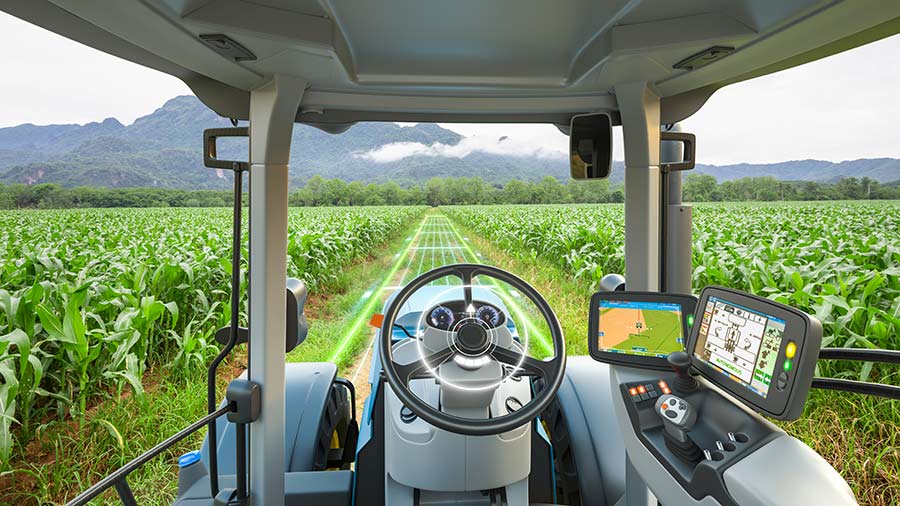Opinion: Artificial intelligence will only go so far in farming
 Kinwun/Adobe Stock
Kinwun/Adobe Stock ChatGPT is causing a stir across the globe. It has been banned in China, in financial institutions on Wall Street and even in some schools here in the UK.
It’s a chatbot that uses artificial intelligence (AI) to generate responses to questions.
It is designed to simulate a human conversation, and can be used to provide customer service, support, or simply to have a conversation with a human-like entity.
See also: Opinion – collaboration is key to raising productivity and innovation
Taking in a question from a user, it generates a response using a variety of techniques including natural language processing and machine learning.
Many believe AI will sound the death knell for school homework and routine journalism.
The global teaching standard of International Baccalaureate (IB) has already accepted it to be an unavoidable part of the future and will accept ChatGPT citations in future coursework.
This chatbot is still in development. As it continues to learn, it will become more and more human-like, perhaps undetectable, making it an increasingly useful tool for businesses and individuals alike.
At a recent roundtable the question was posed: “Who is struggling to find the necessary personnel and skills to satisfy the growing needs of their farming business?”
No AI was required to interpret the data. All present raised a hand.
AI will eventually replace humans in many farming roles. After all, machines don’t want to work from home two days a week.
It is already rapidly changing many industries by applying cognitive science techniques to artificially create something that can take on tasks that once only humans could perform, like reasoning, natural communication and problem-solving.
We are using it already to predict weather patterns and crop needs.
AI will continue to make farms more efficient and productive, automating tasks such as planting and harvesting and providing real-time data analysis to help farmers make better decisions to manipulate husbandry and improve performance.
It will be used to monitor animals and detect early signs of disease, develop new varieties of crops and improve breeding in livestock.
AI is likely to have a significant impact on the jobs of farmers and other agricultural workers round the world.
As more tasks are automated and data-driven decisions become the norm, the need for human workers is likely to decline.
ChatGPT itself says: “This could lead to widespread job losses in the agricultural sector and have a devastating impact on rural communities.”
I would challenge this, though, such is the dearth of available labour in intensive picking sectors such as top and soft fruit, flowers and fresh produce.
Any cost-effective and efficient AI-driven alternative would be filling a void, not replacing humans.
It’s not going to happen tomorrow. Machines currently struggle to match the dexterity and nuance of human hands, and AI technology is expensive and can be difficult to implement.
Their systems require a lot of data input to be effective, and this data may not be readily available in many parts of the world.
Recent extremely volatile episodes of weather, climate change and war have shown AI algorithms to be fallible.
How quickly AI changes the face of farming is unknown. Journalists may be more at risk: 80% of this piece was written by ChatGPT.
I typed the question: “What will be the impact of AI on UK agriculture?” What you’ve just read is its answer.

